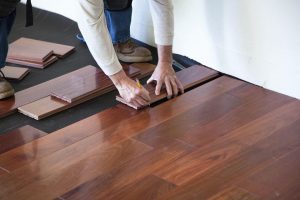The Pros And Cons Of Doing Your Own Floor Installation
Installing durable & beautiful hardwood flooring: what you must know The first thing you will need to do when deciding whether you should install hardwood flooring yourself or hire professional floor installation specialists is honestly assess your own carpentry skills. If you are planning on installing your own floor, it’s important to consider how much time and money you have available and the possible number of people that will be working on it. If you know that your floor has sustained some damage or you are not very experienced, you might want to turn down DIY installation and instead hire qualified floor installation specialists to install it for you.
 The most obvious reason to hire a floor installation specialist to install hardwood flooring for your home is the benefits that they bring to the project. Having floor installation specialists work with you will ensure that they have access to the best products available, meaning that they will be able to perform a quality job in the shortest amount of time. By doing a thorough assessment of your current skills and knowledge, these professionals can help you decide whether or not you really are up to the task and, most importantly, which flooring product is right for your home.
The most obvious reason to hire a floor installation specialist to install hardwood flooring for your home is the benefits that they bring to the project. Having floor installation specialists work with you will ensure that they have access to the best products available, meaning that they will be able to perform a quality job in the shortest amount of time. By doing a thorough assessment of your current skills and knowledge, these professionals can help you decide whether or not you really are up to the task and, most importantly, which flooring product is right for your home.
When you decide to install hardwood flooring yourself, you also have to consider the different tools that are necessary to complete the installation. If you are working from an existing plan and blueprint, your first consideration should be the tools that you will need for installation. Hardwood floor installation requires tools that are appropriate to the type of floor that you are installing – some are better suited to high traffic areas like dining rooms or living rooms than others. If you don’t have plans that require the use of specific tools, you should ask your floor installation specialist for suggestions.
Once you’ve decided on the tools that you will need to install the floor, you should then go over all the details of the job and decide what materials you will be using. Hardwood floor installation involves many different materials and you’ll want to use the best quality that is available to you at that moment. For instance, if you have decided to install your floor in your living room, you might want to purchase a vinyl-covered hardwood floor covering. {with a protective coating to protect the wood underneath. However, if you are doing floor installation in a bathroom, you might prefer to use an aluminum-coated hardwood floor covering. If your floor is exposed to high humidity, an acrylic covering may be preferable but make sure to check with your floor installation specialist about the proper materials to use for your particular situation.
In order to be sure that your floor installation is done correctly and properly installed, you should also discuss the options of waterproofing or re-sealing your floor with your floor installation specialist. Sometimes it’s necessary to waterproof your flooring after installation to keep it safe and waterproof, although this process can be expensive and will only apply to specific types of floors, such as hardwood.
Finally, you should discuss how long you have to wait before you can begin the floor installation. If you have children or pets, you might want to ask about their special needs. You will find that floor installation requires certain equipment for protection from moisture and the type of flooring that you choose for your house, so you must take into account the potential hazards to children or pets before making a final decision on the type of flooring for your home.
